

UD faculty won major honors during the past year. Here we proudly share but a few of their accomplishments.

Roberta Golinkoff, H. Rodney Sharp Chair in the School of Education, won the 2011 Francis Alison Award, the University's highest faculty honor. Named for the Rev. Francis Alison, who in 1743 founded the school to which UD traces its roots, the award is made to exceptional scholar-teachers and consists of a $10,000 prize and membership in the Alison Society.
Director of the Infant Language Project, Golinkoff developed a method to assess language comprehension in babies who do not yet speak. Her Intermodal Preferential Looking Paradigm (IPLP) "tricks" babies to reveal their knowledge of language. Because of her research, it is now known that infants do not sit passively while words wash over them; instead they are actively analyzing what they hear and extracting language's rules and regularities.
Passionate about the importance of play in children's lives, Golinkoff argues that Americans underestimate the value of play and maintains that to ignore the role of playful learning in children's lives is to doom the next generation to follow orders rather than innovate, and to memorize rather than create.
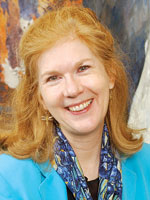
A highly respected scholar, professor and conservator of paintings, Joyce Hill Stoner has treated major works of art in galleries and private collections across the United States. She also has been on the other side of the paintbrush. Her portrait was painted by Andrew Wyeth.
In recognition of her "essential research" that "has fundamentally shaped" the field of conservation scholarship, Stoner, the Edward F. and Elizabeth Goodman Rosenberg Professor of Material Culture in UD's Department of Art Conservation, was bestowed the 2011 CAA-Heritage Preservation Joint Award for Distinction in Scholarship and Conservation. The College Art Association (CAA) is the national organization of art historians and artists, and Heritage Preservation is a national nonprofit dedicated to preserving the cultural heritage of the United States.
The author of more than 80 articles or book chapters, Stoner directs UD's Preservation Studies Doctoral Program, which embraces both historic preservation and the technical study of art and artifacts. In 2003, she received the Lifetime Achievement Award from the American Institute for Conservation.


Charles Elson, Edgar S. Woolard Jr. Chair and Director of the John L. Weinberg Center for Corporate Governance, and associate director Roger Coffin have been named in the National Association of Corporate Directors (NACD) Directorship 100, a who's who of the most influential corporate governance professionals in the nation.
The Directorship 100 list recognizes individual corporate directors from such public companies as Microsoft, Coca-Cola, Dreamworks Animation, Procter and Gamble and Xerox for their boardroom influence and leadership.
"The Weinberg Center is playing an instrumental role in the critical policy issues affecting investor protection, shareholder rights and corporate conduct," said Coffin. "We are proud of the impact we have had on the national debate, and look forward to the future and the opportunity to work toward thoughtful reform in the governance arena."
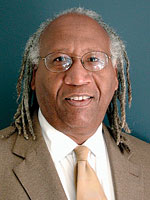
James Jones, professor of psychology, was presented the American Psychological Association's Award for Outstanding Lifetime Contribution to Psychology for his "unparalleled career as a scientist, academic, author, administrator, thinker, innovator, and social justice advocate."
A leading scholar in the study of prejudice and racism, Jones has championed inclusion and diversity throughout his professional and personal life. The APA's Minority Fellowship Program (MFP), which Jones directed for 30 years, is regarded as one of the most successful training programs for ethnic and racial minority researchers and service providers in the history of federally funded programs. The MFP Advisory Committee has recognized his enduring legacy with the naming of the "Minority Fellowship Program James Jones Lifetime Achievement Award."
Jones played a key role in transforming the APA's Office of Social and Ethical Responsibility for Psychology into the Public Interest Directorate, and served as the directorate's first executive director, as well as APA's Affirmative Action officer. He also served with distinction as president of the Society for the Psychological Study of Social Issues (SPSSI), and the Society of Experimental Social Psychology.
Three UD faculty won awards from the Fulbright Program, the flagship international exchange program sponsored by the U.S. State Department and designed to "increase mutual understanding between the people of the United States and the people of other countries."
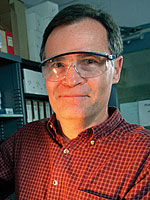
PATRICK GAFFNEY, professor of marine biosciences, contributed to field and seminar courses in marine biology at Victoria University of Wellington (VUW) in New Zealand this past spring. Now he is developing collaborative field courses with colleagues in VUW's School of Biological Sciences that will lead to new opportunities for UD students. A specialist in oyster genetics, Gaffney also worked with VUW shellfish biologists and aquaculturists on aspects of shellfish breeding and production.
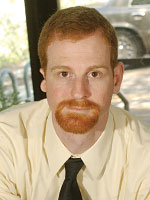
JACK PULEO, associate professor of civil and environmental engineering, is concerned about rising sea levels. Experts estimate that global sea levels will rise nearly five feet in the next century, increasing shoreline erosion and costing the U.S. an estimated $130 million annually on beach nourishment alone. This fall, at the University of Plymouth in the United Kingdom, Puleo is deploying sensors he developed to capture comprehensive data on sand transport for improving erosion models.

S. ISMAT SHAH, professor of materials science and engineering, is developing research collaborations at Baku State University (BSU) in the Republic of Azerbaijan. His research focuses on the synthesis and characterization of nanoscale materials, with a focus on energy applications. His expertise in thin-film photovoltaics, or solar cells made from plastics, is of special interest to scientists in BSU's Nano Center because solar power is an untapped resource in Eastern Europe, a region with abundant sunshine.

Kelvin Lee, Gore Professor of Chemical Engineering and director of the Delaware Biotechnology Institute at UD, has been elected a fellow of the American Association for the Advancement of Science (AAAS).
Lee was selected for "distinguished contributions to the development and application of proteomics technology to human health."
Lee and his team have been at the forefront of developing next-generation tools for protein expression profiling and applying existing tools to specific problems in biomolecular engineering and medicine, with a special emphasis on Alzheimer's disease. Their efforts recently have led to the first validated premortem test for the diagnosis of Alzheimer's disease based on spinal fluid proteins.
"Using a proteomics approach to study changes in protein expression in cerebrospinal fluid, we identified a panel of biomarkers useful for the diagnosis of the disease in living individuals, a previously unmet challenge because a definitive diagnosis must await postmortem confirmation," Lee said.
In close collaboration with clinicians, Lee's group has extended this approach to the assessment of a passive immunization strategy for the treatment of Alzheimer's disease which has shown significant promise in early clinical trials.
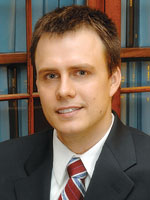
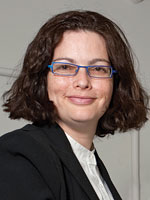
These prestigious National Science Foundation awards support research by rising academic leaders of the 21st century.
Using a novel measurement technique called tandem mass spectrometry, Maciek Antoniewicz, DuPont Young Professor in the Department of Chemical Engineering, aims to quantify the metabolic state of cells. By better understanding how cells communicate and respond to their environment, he ultimately hopes to engineer microbes that will help produce cheaper biofuels and develop improved drugs for treating diseases like diabetes and cancer. His grant award is for $400,000.
Sharon Rozovsky, assistant professor in the Department of Chemistry and Biochemistry, is exploring proteins that contain selenium with her $800,000 grant.
"When cells make energy — through normal living — they produce oxygen, and that can damage the cells," she said. As that damage accumulates over years, it can result in diseases such as cancer and Alzheimer's.
Selenium-containing proteins can help to both slow and prevent that damage, according to Rozovsky, with some acting like "police" to prevent the damage, and others acting like "reporters," transmitting the message to the cells that the level of reactive oxygen is too high.
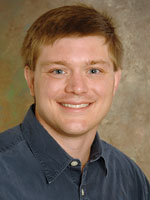
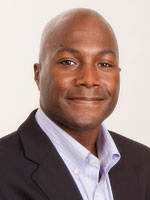
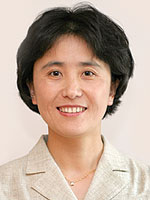
Three UD assistant professors from the departments of Materials Science and Engineering and Chemical Engineering, were among 12 professors from universities in the United States and China to receive DuPont Young Professor grants, which provide $75,000 in unrestricted start-up assistance.
Matthew Doty's focus is on understanding and controlling nanostructured materials at the quantum mechanical level for such applications as the design of coupled "quantum dot molecules" for next-generation information processing devices and nanostructured photovoltaics with optimized energy absorption and transport.
Thomas Epps' research focuses on surface and interfacial interactions in nanostructured polymeric systems. He wants to create conducting membranes for current and next-generation energy generation and storage devices, such as batteries, fuel cells and solar cells.
Xinqiao Jia's primary focus is the synthesis of functional biomaterials for drug delivery and tissue engineering applications. Her work on the development of elastin mimetic hybrid polymers for vocal fold repair and regeneration was highlighted in Chemical and Engineering News in September 2008.